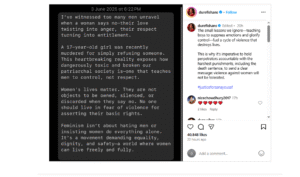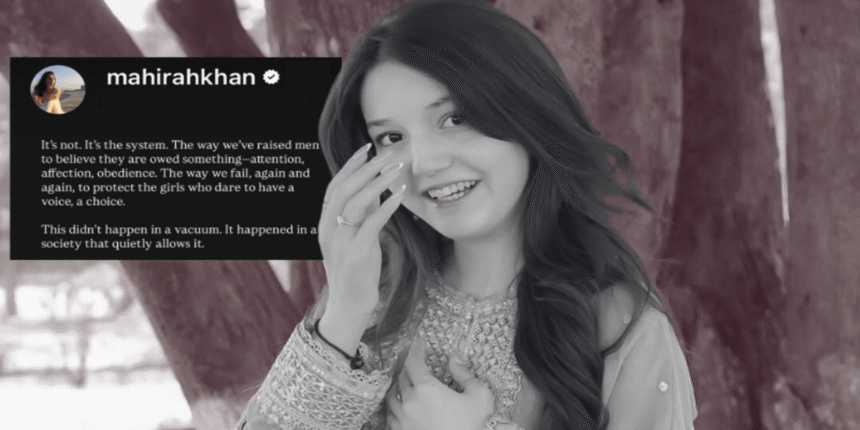The cold-blooded murder of 17-year-old social media influencer Sana Yousaf in Islamabad has sparked national outrage, with celebrities, civil society members, and the general public demanding immediate justice and systemic reform to protect young women in Pakistan.
Read More: Famous TikToker Sana Yousuf Shot Dead in Islamabad, Murderer Arrested
Sana Yousaf, a rising digital personality with nearly 800,000 followers on TikTok and almost 500,000 on Instagram, was fatally shot in front of her mother and aunt. The First Information Report (FIR) reveals that she was gunned down by a man who fled the scene after the attack. Police investigations later confirmed that the motive behind the brutal act was the repeated rejection of the perpetrator’s advances by the victim.
On Tuesday, Islamabad Inspector General Syed Ali Nasir Rizvi announced the arrest of the 22-year-old suspect, Umar Hayat, in Faisalabad. Rizvi described the killing as “an act of rage stemming from wounded pride,” stating, “A beast, a cold-blooded murderer, is now in the law’s grip.” Tiktoker Samiya Hijab also posted a heartfelt video message on her platform, calling attention to the dangers young women face daily in a hyper-judgmental and unsafe environment.
The heinous murder has reignited discourse on gender-based violence, toxic masculinity, and the culture of entitlement that enables such violence. Celebrities across the Pakistani entertainment industry have taken to social media, not only to grieve but to voice searing criticism of societal norms and institutional failures.
Mahira Khan, deeply disturbed, shared on Instagram, “A 17-year-old, beautiful girl… just blown out candles, made wishes, maybe danced a little. And then… gone. Shot dead. Over a bloody no.” She emphasized that such tragedies are not isolated but are “enabled by a society that quietly allows it.”

Saba Qamar echoed similar sentiments: “She was only 17, a child with dreams, laughter, and light. Not just a daughter or sister, but a soul that had just begun to bloom.” She added, “We owe her justice and every girl a world where she can live without fear.”
Sajal Aly and Mawra Hocane condemned the lack of empathy and societal structures that normalize male dominance. Hocane particularly called out media portrayals that romanticize coercion and violence, referencing a recent TV drama that depicted a husband tying up his wife as an act of ‘love’.


Adnan Siddiqui, speaking as a father, posted a reflective message: “A girl said no. A boy couldn’t accept it. And that refusal turned into a gruesome killing.” He stressed the need to raise “emotionally intelligent boys” who understand that “no is a full sentence.”
Durefishan Saleem and Osman Khalid Butt also addressed systemic patriarchy, with the latter demanding swift and uncompromising prosecution of the accused. “No loopholes, no leniency,” he urged.

Sehar Khan stated chillingly: “She said NO. And he broke into her house and killed her. That’s it. That’s the reality.” She added that girls are unsafe not only outside but even within their own homes.

Zara Tareen, Zhalay Sarhadi, Naimal Khawar, Mohib Mirza, Yasir Jaswal, Bilal Ashraf, Asim Azhar, and Ayesha Omar joined the chorus, mourning the loss and condemning the mindset that permits such tragedies.


A Call for Accountability and Reform
Civil society organizations and women’s rights groups have called for concrete legal reforms and stronger protective mechanisms for women and girls, especially in digital spaces where stalking and harassment are rampant.
Sana Yousaf’s case, now under high-profile scrutiny, is being seen as a test case for the justice system and society at large. The call is clear: justice for Sana, and systemic change to ensure this never happens again.




